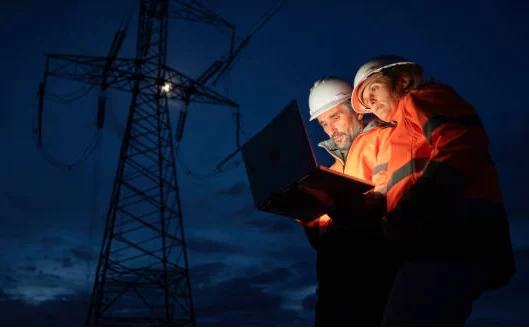The Rise of Total Energy Solutions: Your Guide to Sustainable Power
In today’s world, the quest for sustainable energy solutions has never been more critical. As the effects of climate change become increasingly apparent, individuals and businesses alike are seeking comprehensive strategies to reduce their carbon footprints. This is where the concept of a total energy solution comes into play. In this blog, we’ll explore what a total energy solution entails, its benefits, and how you can implement it in your daily life or business operations.
A total energy solution encompasses a holistic approach to energy management. It integrates various energy sources, technologies, and strategies to optimize energy use while minimizing environmental impact. Instead of relying solely on traditional energy sources, a total energy solution leverages renewable energy sources, energy storage systems, smart technologies, and efficiency measures to create a more sustainable and resilient energy ecosystem.

Key Components of a Total Energy Solution
- Renewable Energy Sources
At the heart of any total energy solution is the use of renewable energy sources such as solar, wind, hydro, and geothermal. These resources harness natural energy, significantly reducing reliance on fossil fuels and decreasing greenhouse gas emissions.
- Energy Storage Systems
To maximize the benefits of renewable energy, energy storage systems are crucial. Technologies like lithium-ion batteries allow users to store excess energy generated during peak production times for use during low production periods, ensuring a constant energy supply.
- Energy Efficiency Measures
Implementing energy efficiency measures is a key aspect of any total energy solution. This includes upgrading appliances, improving insulation, and using smart energy management systems to reduce overall consumption. The goal is to get the most out of the energy you use.
- Smart Technologies
Smart technologies play a vital role in a total energy solution. These include smart meters, energy management systems, and IoT devices that monitor and optimize energy consumption in real time. By analyzing data, these systems help users make informed decisions about energy use.
- Sustainable Practices
Adopting sustainable practices in daily operations is essential for a total energy solution. This can involve everything from reducing waste and recycling to using sustainable materials in construction and manufacturing processes.
Benefits of Total Energy Solutions
- Cost Savings
One of the ultimate benefits of implementing a total energy solution is cost savings. By reducing energy consumption and utilizing renewable sources, individuals and businesses can lower their energy bills significantly. Over time, these savings can add up, making a substantial difference to your bottom line.
- Environmental Impact
A total energy solution dramatically reduces your carbon footprint. By shifting to renewable energy and implementing efficiency measures, you contribute to a healthier planet, combatting climate change and preserving natural resources for future generations.
- Energy Independence
With a total energy solution, you become less reliant on traditional energy providers. This independence not only enhances energy security but also protects you from fluctuating energy prices and supply disruptions.
- Increased Resilience
In an era of increasing natural disasters and power outages, having a comprehensive energy solution makes you more resilient. Energy storage systems and distributed generation can provide backup power when it’s needed most.
- Regulatory Compliance
Many governments are introducing regulations aimed at reducing carbon emissions. Implementing a total energy solution helps businesses comply with these regulations, avoiding potential fines and enhancing their public image.
Implementing a Total Energy Solution
- Assess Your Current Energy Use
The first step in creating a total energy solution is to evaluate your current energy use. Conduct an energy audit to identify areas where you can improve efficiency and where renewable energy can be integrated.
- Set Clear Goals
Determine your energy goals. Whether it’s reducing energy costs by a certain percentage, becoming entirely energy independent, or achieving specific sustainability certifications, having clear objectives will guide your strategy.
- Invest in Renewable Energy
Consider investing in renewable energy sources. Solar panels are a popular option for homeowners and businesses alike, offering a practical way to harness energy from the sun. Wind turbines and geothermal systems can also be viable options depending on your location.
- Incorporate Energy Storage
Pair your renewable energy systems with energy storage solutions. This combination ensures that you have access to energy when you need it most, regardless of production conditions.
- Adopt Smart Technologies
Implement smart technologies to monitor and manage your energy consumption. Smart meters provide real-time data, helping you adjust your usage patterns for maximum efficiency.
- Educate and Involve Stakeholders
Whether you’re a business owner or a homeowner, educating those around you about the benefits of a total energy solution is key. Involving stakeholders in the decision-making process ensures that everyone is on board with the changes being made.
- Monitor and Optimize
After implementing your total energy solution, continuously monitor its performance. Use data to identify areas for further improvement and optimization. This ongoing process is essential for maximizing efficiency and effectiveness.
The Future of Total Energy Solutions
As technology continues to evolve, the landscape of total energy solutions is set to change dramatically. Emerging technologies, such as advanced energy storage systems and artificial intelligence-driven energy management, will enhance the capabilities of total energy solutions. Additionally, as more individuals and businesses recognize the importance of sustainability, the demand for comprehensive energy strategies will grow.
The integration of electric vehicles (EVs) into the energy ecosystem is another exciting development. As more people switch to EVs, the potential for using these vehicles as part of a total energy solution increases, allowing for even greater flexibility and energy management.
In summary, a total energy solution represents a comprehensive approach to managing energy in a sustainable and efficient manner. By integrating renewable energy sources, energy storage, smart technologies, and efficiency measures, individuals and businesses can significantly reduce their energy costs and environmental impact.
The transition to a total energy solution is not just a trend; it’s a necessary shift towards a sustainable future. As we face the challenges of climate change and energy insecurity, adopting these solutions will play a vital role in ensuring a cleaner, more resilient world. Whether you’re a homeowner looking to reduce your energy bills or a business striving for sustainability, embracing a total energy solution is a powerful step in the right direction.
